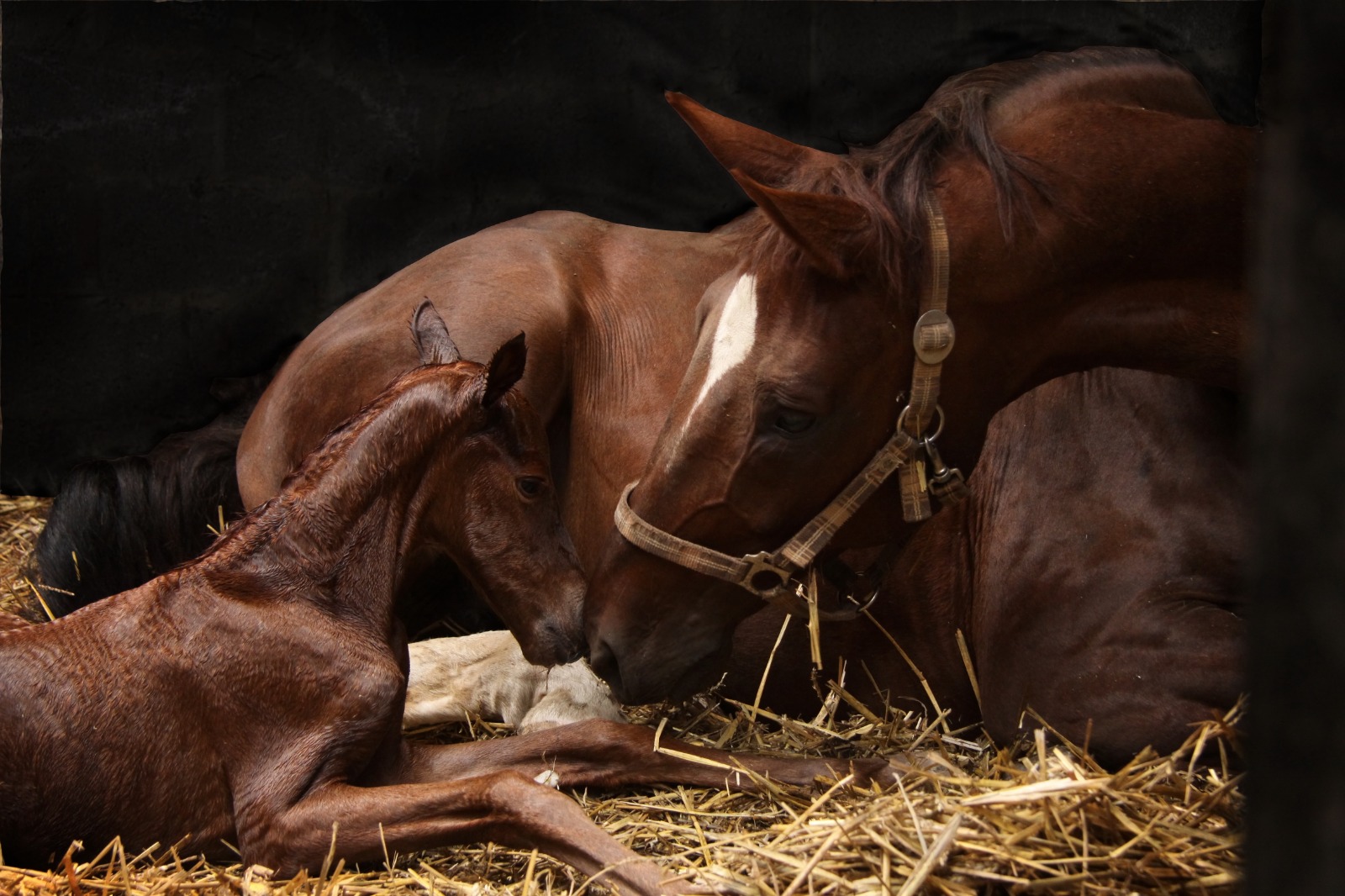- +353 (0)45 866266

It is recommended that uterine cytology and culture are used together to allow for the most accurate diagnosis of uterine infection. Uterine cytology is used primarily to identify the number and type of inflammatory cells present in the sample and may also indicate if bacteria are present. Bacterial culture is used to identify the cause of infection and the most appropriate antimicrobials for treatment of infection. Small-volume uterine lavage is the preferred sample for uterine cytology and culture as it samples a larger area of the uterus compared to swab samples. It is vital that samples are collected as aseptically as possible to ensure accurate results. This can be achieved by preparing the mare appropriately (bandage tail, wash perineum) and by using a sterile speculum for collection of swab samples.
Contagious equine metritis is a venereal disease of horses caused by the bacterium Taylorella equigenitalis. This highly contagious disease causes infertility in the mare and is transmitted at breeding. Carrier mares and stallions show no clinical signs of the infection while recently infected mares generally have a purulent vulval discharge. Under the International Code of Practice, horses must be tested for the presence of Taylorella equigenitalis, and for the other venereal pathogens, Klebsiella pneumoniae (capsule types 1,2 and 5) and Pseudomonas aeruginosa) in advance of breeding to demonstrate freedom from infection. The number of samples to be taken depends on the risk category of the mare but, at a minimum, swabs of the clitoral fossa, clitoral sinus and endometrium are recommended.
Swab samples for CEM testing must be submitted in Amies charcoal transport medium within 36 hours of being taken and should clearly state the following on both the swab and sample submission form:
Please note that samples must be submitted using in-date swabs. The turnaround time for all culture-based CEM tests is 7 days, without exception.
A list of CEM tests provided by the IEC is available here.
The IEC also provides PCR testing for CEM with a turnaround time of 2 days. Urgent CEM PCR testing with a turnaround time of 24 hours is also available. Please note that samples for PCR testing must be submitted by 10 am to avail of these turnaround times.
Sign up for our newsletter and keep up to date with industry news!
Sign up for our newsletter and keep up to date with industry news!
Privacy Policy | Terms & Conditions
© Copyright Irish Equine Center. All Rights Reserved | Designed by DMC Consultancy LTD